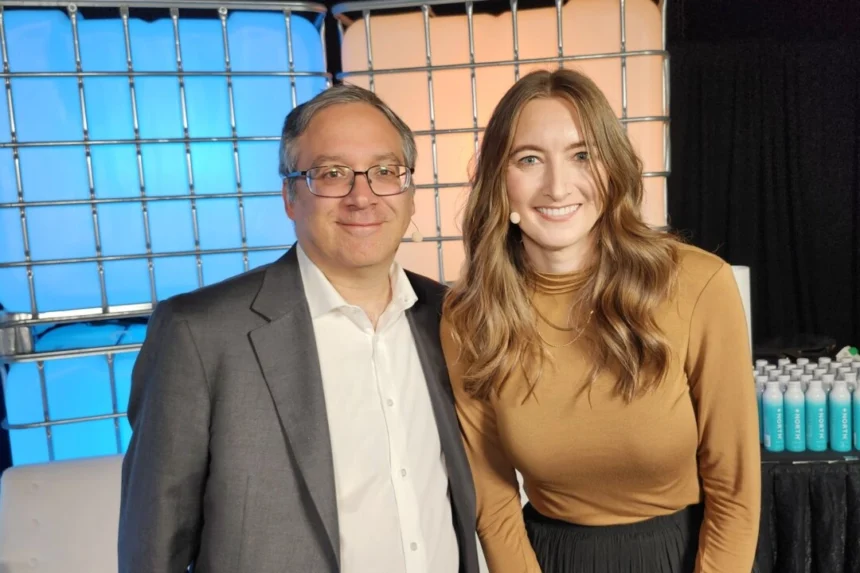One of the world’s premier technology conferences made its debut in Vancouver last week, drawing a record-breaking 16,000 attendees from 117 countries for its first-ever Canadian edition.
Experts presenting at Web Summit, held at the Vancouver Convention Centre from May 27–30 and featuring global leaders, entrepreneurs, and innovators, had a lot to say about the advancements in artificial intelligence (AI), but many also warned of the perils of the advancements and the need for safeguards.
One of the first sessions at the event was titled “Current AI is technically and morally inadequate,” with panelists Gary Marcus, a scientist, author, and well-known critic of AI, and Amy Nordrum, executive editor of MIT Technology Review.
Marcus said he wants to see the success of AI technology, particularly in the area of medicine, but noted the “huge risk” involved. These include, he said, “massive cyberattacks,” information hallucinations (incorrect or misleading results that AI models generate), teaching people how to make bombs, and cheating in schools.
“The danger really comes from giving a person or a machine power that it shouldn’t have,” he said. “The system is too stupid to know when it’s actually giving somebody information about chemical weapons.”
But in the race to develop new and better AI, companies have “a fear of missing out” that has resulted in carelessness and non-regulated use, he said, while media ramps up the hypes “because they want to be there for the magical moment.”
Testing Challenges
Will Wilson, CEO of Antithesis, outlined how sometimes companies are too reliant on computerized operations in his talk “Why software is breaking and why AI is not the shortcut.” He recalled how CrowdStrike, the cybersecurity giant, brought down thousands of systems last July as it pushed out a faulty Windows update. Airlines, banks, and 911 lines went offline, he said.
Knight Capital Group, after a trading algorithm error in August 2012, lost the company US$460 million and led to its bankruptcy, he added, and also noted that the Boeing 737 Max Eight disasters were because of a software bug.
When it comes to AI, his sense is that the problem will be more widespread. AI is writing itself code with “some parts in the middle that don’t actually make any sense.”
“It’s full of bugs,” he said, “and increasingly this code is getting taken, not looked at by any human being, and just shipped out into the world and running somewhere where it can cause all kinds of havoc. And the consequences of this we’re going to be living with for years and years.”
The more AI becomes entrenched in the world, the harder it will be to test it along the way, he believes.
“Once the software actually gets out there in the real world, people use it in all kinds of ways that the person writing the code never thought of, and that creates more unexpected situations which can cause more craziness and more complexity,” Wilson said.
‘False Promises’
Michelle Maggrah, a representative of the Wabigoon Lake Ojibway Nation (WLON) in Ontario, said that after attending various sessions on AI she came to realize that “there are a lot of misunderstandings when it comes to AI, and we are being sold a lot of false promises when it comes to its capabilities.”
“We must always stop and ask, ‘Where’s the poo?’—a saying I live by—so you can avoid stepping in it. No matter how perfect the package is, or how established something seems, we need to question and keep questioning it, to innovate.”
Maggrah also attended the event’s Indigenous Tech Ecosystem Meetup, hosted by the Indigenous Tech Circle, where more than 80 people from an array of Canadian First Nations gathered to network. Although space was limited for that event, attendees were still able to make connections, she told Epoch Times.
“I found a piece of home in a small window of 90 minutes with the Indigenous Tech Circle. It was very apparent that a small room packed over capacity was not enough for the need,” Maggrah said.
“With constant knocks at the door throughout the sharing circle, and only a 60-second window for introduction, we persevered and spent hours in the halls, with newly made connections, sharing information. With the nations growing into the tech sector, we need a larger space and platform to connect with our people, especially our innovators.”
Founded in Dublin in 2009, Web Summit has expanded globally with several international editions beyond its flagship Lisbon event, including Rio de Janeiro and Doha.
Speaker topics on panels, talks, and presentations ranged from AI, fintech (financial technology), entrepreneurship, software advances, and media.




